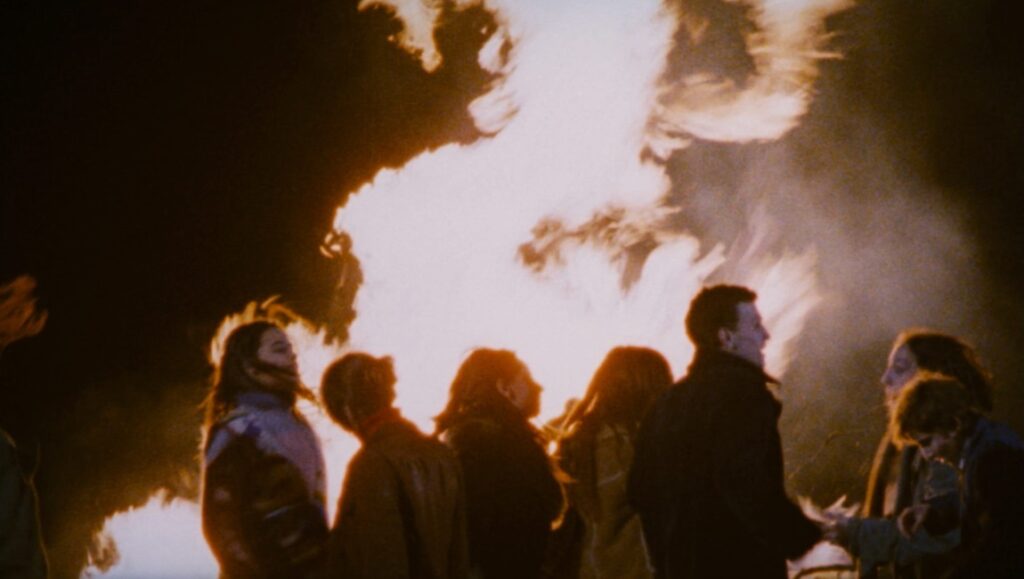Any number of filmmakers can fittingly have their work characterized as “vibrant,” but very few filmographies feel as alive as that of Olivier Assayas. Whether that sense comes in following a film crew as they attempt to remake a Louis Feuillade classic, tracking a spectral text message conversation across a series of trains in Europe, or charting the notorious political terrorism career of one Ilich Ramírez Sánchez, there is a singular verve that runs through all of Assayas’ work that is remarkably stirring to experience. Simply put, he knows how to keep the party going, and this can be attributed to his unparalleled knack for memorable needle drops and dexterous camerawork that nimbly weaves its way in and out of scenes. Initially a film critic, Assayas began directing in the 1980s, but his style truly crystallized in his 1994 breakthrough, Cold Water. Previously unavailable for many decades — largely due in part to the extensive rights needed for the film’s soundtrack — Cold Water was lovingly restored and released by the Criterion Collection in 2018, already a long-time home for many of Assayas’ other physical releases in North America. Now, at 30 years old, Cold Water remains an exhilarating watch, the work of a burgeoning artist that perfectly captures the director’s punk rock ethos as he and his characters boldly venture out into the unknown.
Set in Paris, 1972, the film follows disaffected youths Gilles (Cyprien Fouquet) and Christine (Virginie Ledoyen) as they navigate their place in the world while standing on the precipice of adulthood. Gilles, who lives with his grandmother — herself a survivor of World War II — feels stifled by existence, resorting to casual acts of shoplifting and vandalism as a form of expression, eventually escalating to potential acts of terrorism, having secured several sticks of dynamite to aid his cause. Meanwhile, Christine has lived a sorrowful life in and out of mental institutions. Having just been re-committed, she breaks out and reunites with Gilles, with the duo heading to a party at an abandoned house in the countryside, joining other frolicking youths as they hope to do some drugs and dance the night away. An incredibly gifted formalist, Assayas beautifully captures the relationship between the pair, keenly observing their intimacy with fly-on-the-wall photography that almost feels like documentary-esque at time, an impression further developed by the relative amateur status of the two lead actors (Leodoyen had already been in a few projects, but Fouquet was a complete newcomer). It’s remarkably confident work, assured in its formalism, an early crystallizing moment of a master honing his craft.
But if there’s any reason Cold Water continues to be celebrated, it’s for the extended party sequence that takes up roughly one-third of the film’s brisk 90-minute runtime. Blasting ’70s American hits by Creedence Clearwater Revival, Alice Cooper, Janis Joplin, Bob Dylan, and Leonard Cohen, among others, Assayas’ film roars to life with vibrancy, as Assayas’ verité-style camera drops the viewer right into the sprightly atmosphere of rebellious adolescence. For this brief period of transcendent screentime, it feels as though anything is possible and nothing else in the world matters. Assayas has alluded to Cold Water being autobiographical of his own teenage years, and interestingly enough, Gilles even shares the same name with the protagonist of 2012’s Something in the Air, which ends with another Assayas analog breaking into the film industry following the tumultuous French protests of May 1968. In this way, Cold Water is a deeply personal film, but also true is that few things are as universal as teenage angst hopelessly fighting to stave off an uncertain future. Eventually, the party must come to an end.


Comments are closed.